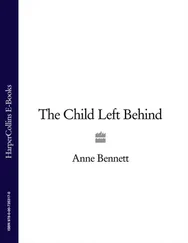Without young kids coming through at every club in the country, there will be fewer and fewer players to choose our national team from. Without decent facilities for those youngsters to improve, the quality of our senior players will diminish. If the big clubs are also going broke because the marketing and administration of the game are so poor, then they will likewise go on a downward spiral – able to spend less on youth development, less on elite coaching and modern advances in sports science. English clubs are starting to move so far ahead of Welsh clubs in such areas that they are almost out of sight.
All these problems feed into a growing chasm between England and Wales on the international field – it being this widening gap that now concerns me most. England moved past Wales more than a decade ago and have been getting farther ahead of us ever since. In the last 13 matches between the sides, Wales have won just twice and on both occasions it was by a single point. More worrying still is that England’s winning margins have been getting bigger and bigger. The fixture is becoming seriously one-sided, a foregone conclusion. Perhaps it was a foregone conclusion in Wales’s favour in the seventies, but the implications for what was then the Five Nations were less serious. Back then, alternatives to the championship in terms of rival tournaments were simply not on offer. Now, big business, more air links and the growth in broadcasting and sponsorship mean things can no longer be taken for granted.
If England keep thrashing Wales, as they have thrashed us in recent seasons, then I worry seriously for the future of the Six Nations. Scotland’s decline has been as bad as Wales’s, and Italy continue to struggle. Ireland are just about holding on, but even they struggle away from home to either England or France. The tournament has not yet become a two-horse race, but it is going that way. The more predictable it becomes, the less it is going to appeal to sponsors and broadcasters. Who wants to watch mismatches and foregone conclusions? We have seen Lloyds TSB end their sponsorship of the Six Nations and when the TV contract was up for grabs in 2002 the BBC was the only bidder at the table.
The 2002 victory by England over Wales at Twickenham was one of the most depressing matches I have ever witnessed. It wasn’t just the defeat – I expected that – it was the complete lack of atmosphere either before the game, during, or afterwards. Everyone inside Twickenham knew what the result would be. The only question was the size of the winning margin. In the end it finished 50–10 but it could have been a whole lot more. I felt relieved it wasn’t 80 points, but the reaction of the English fans left me dumbstruck. There were no noisy celebrations, no goading or even much satisfaction. It was as if they had beaten Italy or Tonga – a job had been completed but that was about it.
I know England have failed to pick up the Grand Slam by losing to Wales, Scotland, Ireland and France in successive seasons, but the Celtic countries cannot sustain their challenge at present. They can rise to the occasion once every few years, but that’s not really good enough. My big worry is that England will soon get a better offer to go off and play the Tri-Nations countries. For TV companies an annual tournament featuring New Zealand, Australia, South Africa and England would be very appealing. The French might then have their loyalties tested and it would not surprise me if they went, too. That would leave Wales, Ireland and Scotland on their own and in a real mess. I can’t think of too many companies who would break the bank to sponsor a Celtic Tri-Nations featuring three also-rans. Income for Wales would plummet and it could be the end of any hopes of ever getting back among rugby’s world elite.
I had a frightening vision of that kind of future when Wales lost at home to Scotland in the final match of the 2002 Six Nations. It was an awful match between two poor sides. There were empty spaces in the Millennium Stadium at the start and thousands more were streaming out before the end. Steve Hansen, who took over from Graham Henry as coach midway through the season, looked a deeply troubled man and he had every reason to be.
Wales, and Hansen, finished the 2002 championship with just one victory, at home to Italy. We were dreadful at Twickenham, plucky in defeat against the French, but awful against Scotland and simply pathetic in losing heavily to Ireland in Dublin. I hesitate to say that record defeats to England and Ireland represented a new low, because there have been so many other low points to choose from, but it certainly felt as though we were bumping along the bottom.
It’s been a painful ride and I have more bruises than I care to count. But for those men in charge of the Welsh teams over 20 years of decline it’s been absolute agony.
Конец ознакомительного фрагмента.
Текст предоставлен ООО «ЛитРес».
Прочитайте эту книгу целиком, купив полную легальную версию на ЛитРес.
Безопасно оплатить книгу можно банковской картой Visa, MasterCard, Maestro, со счета мобильного телефона, с платежного терминала, в салоне МТС или Связной, через PayPal, WebMoney, Яндекс.Деньги, QIWI Кошелек, бонусными картами или другим удобным Вам способом.












